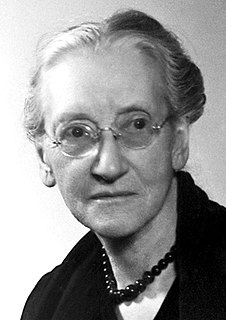A Quote by Ibrahim Babangida
If you ask me to summarise our mission, I would put it this way: We were a military regime that sought to lay the foundations for freedom and liberty in a complex society.
Related Quotes
Of course, there is no question that Libya - and the world - will be better off with Gaddafi out of power. I, along with many other world leaders, have embraced that goal, and will actively pursue it through non-military means. But broadening our military mission to include regime change would be a mistake.
In the councils of government, we must guard against the acquisition of unwarranted influence, whether sought or unsought, by the military industrial complex. The potential for the disastrous rise of misplaced power exists and will persist. We must never let the weight of this combination endanger our liberties or democratic processes. We should take nothing for granted. Only an alert and knowledgeable citizenry can compel the proper meshing of the huge industrial and military machinery of defense with our peaceful methods and goals, so that security and liberty may prosper together.
I am convinced that it is one of the most unjust wars that has ever been fought in the history of the world. Our involvement in the war in Vietnam has torn up the Geneva Accord. It has strengthened the military-industrial complex; it has strengthened the forces of reaction in our nation. It has put us against the self-determination of a vast majority of the Vietnamese people, and put us in the position of protecting a corrupt regime that is stacked against the poor.
Why would I strike America and invite a retaliatory counterstrike that would put an end to my regime? Keep in mind, the whole point of this - my entire strategy, all our efforts and the hardships we have borne - is to ensure that my regime and I survive. Why would I risk that? I believe in assassination, not suicide.
Me and my sisters were taught that if our eyes worked and our legs worked, we were beautiful. We had so many kids in our family that if we all got in front of the mirror and were ashamed of browns and golds and yellows and whites, and we believed what society told us - that the darker people were less attractive and the lighter ones were prettier - we would have had sibling murders. My family, being half-rural and half-military, just came from a different place.
For my part I have sought liberty more than power, and power only because it can lead to freedom. What interested me was not a philosophy of the free man (all who try that have proved tiresome), but a technique: I hoped to discover the hinge where our will meets and moves with destiny, and where discipline strengthens, instead of restraining, our nature.
I ask that you offer to the political arena, and to the critical problems of our society which are decided therein, the benefit of the talents which society has helped to develop in you. I ask you to decide, as Goethe put it, whether you will be an anvilor a hammer. The question is whether you are to be a hammerwhether you are to give to the world in which you were reared and educated the broadest possible benefits of that education.











































